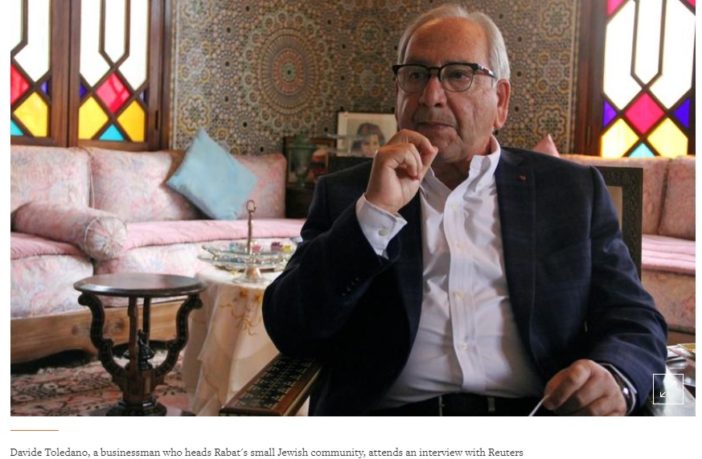Reuters
By Ahmed Eljechtimi, Ari Rabinovitch
Israel and Moroccan Jews on Friday celebrated an agreement to normalise relations between the two countries, but the largest party in Morocco’s government faced internal wrangling over a move that some Moroccans regard as a betrayal of Palestinians.
The U.S.-brokered deal – the fourth such “normalisation” announcement involving an Arab country and Israel in as many months – also drew criticism from Moscow.
A core element of the deal brokered by President Donald Trump was U.S. recognition of Morocco’s claim to sovereignty over the Western Sahara. A decades-old territorial dispute has pitted Morocco against the Algeria-backed Polisario Front, which seeks to establish an independent state.
Russia’s foreign ministry said the U.S. decision to recognise Moroccan sovereignty was a breach of international law, the RIA news agency reported.
Winning global support for its claim over Western Sahara is Morocco’s most important foreign policy goal. It has also often pursued a more open stance towards Israel and Israelis of Moroccan descent than have other Arab states.
Moroccan Foreign Minister Nasser Bourita said on Thursday that King Mohammed VI has pursued a U.S. shift in its Western Sahara policy for three years, forging close ties with Trump’s son-in-law and senior adviser, Jared Kushner.
But while the king has the final say on foreign policy, the moderate Islamist PJD – which gained the most seats in a 2016 election – did not appear wholly united on the announcement about Israel.
In a debate late on Thursday after the deal was announced, disagreements emerged among senior party leaders, according to one member who was present. Nearly a full day later, on Friday, the party had still not commented on the deal, long after its main coalition partners had welcomed the move.
MOROCCAN JEWS
Morocco was home to a large Jewish community before Israel was founded in 1948, and around 3,000 Jews still live there.
Around 50,000 Israelis travel to Morocco each year to visit religious sites and other tourist attractions, but there are no direct flights and tourists undergo a lengthy process to obtain visas.
Suzanne Harroch, a Moroccan Jewish singer from Rabat, said the new arrangement would bring her closer to her relatives in Israel.
“The history of the Jews in Morocco dates back 3,000 years. This history was intrerrupted, but now with this decision normalcy will be restored,” she said.
Her sentiments were echoed by Israeli cabinet minister Miri Regev, whose parents were among the estimated 250,000 Jews who emigrated from Morocco to Israel. She said older Israelis would now find it easier to go back.
“They will visit with their grandchildren, their kids, they can be proud of the glorious heritage they brought with them,” Regev said.
Israeli airliners said they plan to launch direct flights and tour operators expect a jump in demand for tourism.
Davide Toledano, a businessman who heads Rabat’s small Jewish community, said he expected Israeli investment in Morocco’s agriculture and water sectors.
Showing a photograph of himself with a former PJD head, he said relations between Moroccan Jews and Muslims were good. “We received congratulations from our Muslim brothers,” he added.
But others said geopolitical considerations underlay the deal, ahead of President-elect Joe Biden’s arrival in the White House in January.
“Morocco made a calculation that their ability to win American recognition over the Western Sahara (was) likeliest in a Trump administration,” said David Makovsky, a former U.S. Middle East negotiator at the Washington Institute for Near East Policy.
Palestinian President Mahmoud Abbas and official Palestinian media remained silent, but former Palestinian negotiator Hanan Ashrawi said Trump was “emboldening” Israel.
“We all know that this is extremely irresponsible because it encourages power politics and the violations of international law everywhere,” she told Reuters.
Reporting by Ahmed Eljechtimi in Rabat and Ari Rabinovitch in Jerusalem; Additional reporting by Angus McDowall, Stephen Farrell, Ali Sawafta, Zainah El-Haroun and Matt Spetalnick; Editing by Frances Kerry
Our Standards: The Thomson Reuters Trust Principles.







